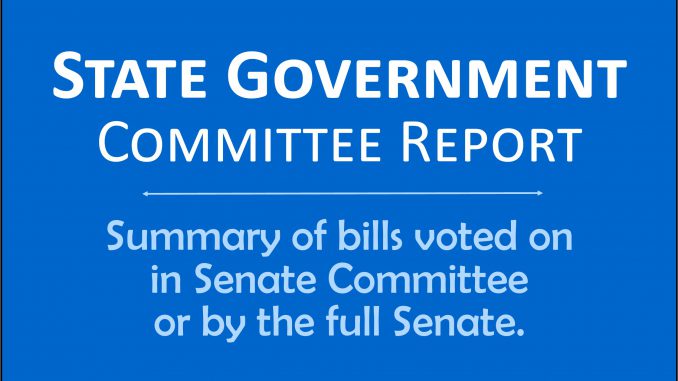
HJR 12 – Constitutional convention;
HF 2200 – Terrace Hill musical arts endowment fund;
HF 2425 – Interstate physical therapy licensure compact.
COMMITTEE ACTION:
HJR 12 has the Iowa Legislature both petition the United States Congress to propose an amendment to the U.S. Constitution on its own and applies to Congress to call a convention to propose amending the U.S. Constitution to impose fiscal restraints on the federal government and limit its power and jurisdiction. If passed, this resolution will be considered a continuing application to call a constitutional convention until at least two-thirds of state legislatures request a similar convention or until the Iowa Legislature withdraws its application.
[2/14: 12-2 (No: Dvorsky, Jochum; Excused: Feenstra)]
HF 2200 authorizes the Terrace Hill Commission to establish and maintain an endowment for musical arts to fund and conduct piano competitions and provide scholarships to select competition participants. The Terrace Hill Piano Competition started in 1986 and is held annually at the Iowa Public Television studios. Each of the three senior-level finalists is awarded a scholarship over a two-year period to enroll as a piano major or minor at any Iowa college or university. Scholarship amounts for 2018 are $5,000 for first place; $3,000 for second; and $2,000 for third.
Concerns around this bill center on the existing Terrace Hill Society that has been around since the 1980s and has previously raised funds and conducted this piano competition. In the last couple of years, a new entity (the Terrace Hill Partnership) wanted to take over this work, with or without the accompanying funding. The Society is a 300+ open member group. The more recently created Partnership is a five-member appointed board.
[2/14: 8-6, party-line (Excused: Feenstra)]
HF 2425 adopts the interstate physical therapy licensure compact. The compact grants Iowa the authority to obtain biometric information from applicants for physical therapy licensure and to submit such information to the Federal Bureau of Investigation for a criminal background check. The compact will increase consumer access to physical therapy services by reducing regulatory barriers to interstate mobility and cross-state practice. The ability of a clinician to practice across jurisdictional boundaries with minimal barriers has become an issue with the changing health care system, evolution of physical therapy education, mobile communications between patient and client, mobility of patients accessing care, large health care corporations and insurance companies, and the advent of new ways in which to deliver care (e.g., telemedicine). Under the compact, the state that granted a license retains exclusive authority to discipline that licensee. However, any member of the compact may investigate actual or alleged violations of the statutes and rules governing the practice of physical therapy of another state. A state that has granted a licensee a compact privilege may take disciplinary actions against that compact privilege. Member states may also engage in joint investigations of licensees. The commission may levy annual assessments or other fees against member states or other parties to cover operational costs.
[3/14: 14-0 (Excused: Feenstra)]
